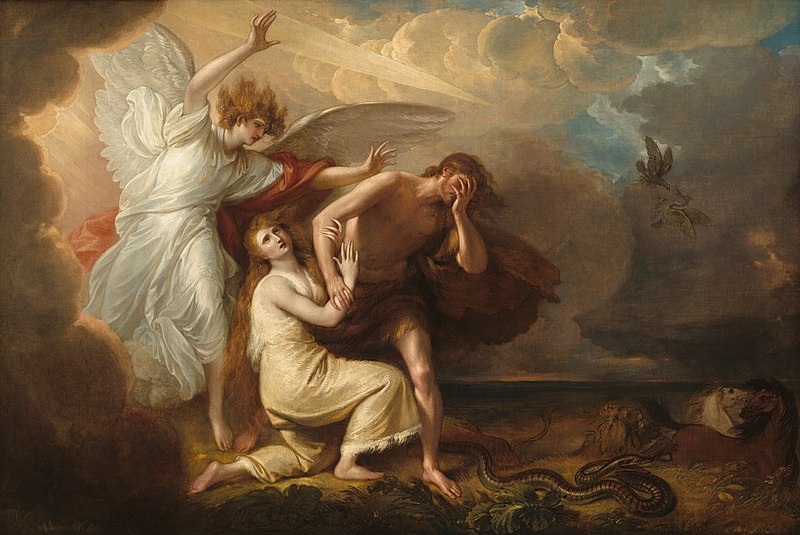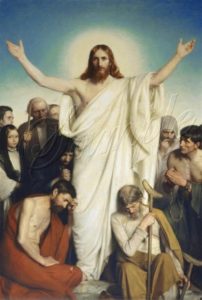No Exemption for the Exempt
Throughout the civil restrictions placed upon the general public on account of the virus outbreak, a growing number of legislators have been called out on exempting themselves from following their own rules.
As the entire flow of life was disrupted for the vast majority – and with catastrophic consequences as is being realized – like the pigs in Animal Farm a ruling class increasingly more divorced from its constituents is continuing to gain momentum. Exemption seems to be their rule of life. When caught, the back-peddling justifications are a bit pathetic; no real change occurs which further damages already damaged confidence.
While these are more blatant examples, we know that self-exemption from an established rule or practice is something everyone tends to fall into with varying degrees of frequency; common sense and circumstance play into this, so this is not to be considered morally wrong in every instance. Posted speed limits on open freeways are a common example, although most tend to drive within the tolerated excess. Parents will sometimes exempt themselves from some of the house rules, for good or for bad. Children will try to do the same, usually not for good. We sometimes try to benefit from promotions that we do not meet the requirements for. We think we can improve ourselves at something, like an instrument or sport, while exempting ourselves from practice. We believe we are entitled to things we have not earned. At its core, self-exemption means that we think something does not apply to us (which actually may be the case in some instances), or we think we are above something.
Sin is really another form of self-exemption.
 Pride is at its root and has its origins in Eden. Despite the explicit command from God, Eve would be tricked into thinking His command did not apply to her; God was not making all the details available about what the fruit did and so was somehow being deceptive. She came to believe that she had a right to know what God was hiding behind tree number one, and would influence Adam to think the same, considering themselves exempt from His command.
Pride is at its root and has its origins in Eden. Despite the explicit command from God, Eve would be tricked into thinking His command did not apply to her; God was not making all the details available about what the fruit did and so was somehow being deceptive. She came to believe that she had a right to know what God was hiding behind tree number one, and would influence Adam to think the same, considering themselves exempt from His command.
We know the results and we feel it in our blood and bones. Anytime we sin, be it venially or seriously, be it from frailty or malice, in essence we hold ourselves exempt from some command of God, some moral ought or law that compels us to act in a certain way and not act in another.
 So when we take a thoughtful look at the life of our Lord, one aspect that should strike us is how Christ never exempted Himself from anything.
So when we take a thoughtful look at the life of our Lord, one aspect that should strike us is how Christ never exempted Himself from anything.
This can be quite humbling, because there were many things He was rightfully exempt from in virtue of being true God. But in order to redeem fallen humanity – all of us – and provide remedy for the very root of our sin, our Lord, though sinless, chose to identify and associate Himself with the lot of sinful man. Christ would comport, act, and suffer as though He were the same as us, one tempted (i.e., tried) in all things like we are, without sin. (Heb. 4:15) Fr. Edward Leen, in his book In the Likeness of Christ, offers some insight:
We must cultivate those dispositions which were in the heart of Jesus. He, being of divine nature, might without injustice claim, even in this world, the immunity that belongs to God. By His divine origin, He could claim to be treated as God; by reason of His sinless earthly origin He was not indebted to mortality and its attendant evils. But He chose to forego His prerogatives as Son of God and Sinless Man and to embrace the life conditions that are the lot of sinful humanity. Having made His choice, He firmly abided in it and claimed no exemptions from its consequences. In this is His humility. (II, ch. 3)
Fr. Leen further observes that what we are by nature, Christ is by choice (sin excepted):
Once having chosen for Himself the condition of sinful creature amongst sinful and imperfect creatures, Christ never for one single instant sought to emancipate Himself from the consequences of that position. Since that was His condition before God and man, He firmly abided in it and conducted Himself as became that condition. When His life was sought by a powerful prince He did not, as He might have done, use His divine power to avoid the notice and escape the hatred of His enemy; He did simply what any child of the humble worldly condition that was His would do – namely, flee for shelter in a foreign country.
The poverty, powerlessness, want of influence accompanying His station in life left Him without any other means of saving Himself from death, except flight and the guiding protection of God. He did not repine or murmur at the cruelty and wickedness of His enemy. In the actual order of things, wrongdoing, injustice, tyranny and persecution of the good are in the order of Providence. He submitted uncomplainingly to it all because all this was the consequence of the position He had assumed, and in this lies His humility. [emphasis in the original] And it is in this that He asks us to imitate Him, at the same time encouraging us by the thought that it is by this way that our souls can enjoy rest and peace (ibid.)
With Lent upon us, perhaps it does us well to consider where we hold ourselves exempt in certain matters where we should not. While it can be lots of different things, it is best to figure out what are the one or two most important or weighty, and so choose beneficial and helpful penances in this spirit of our Savior, and offer them in partnership with Him, together with our Lady. These need not be difficult or burdensome, but ones that prompt us to look at ourselves and ask why we do so. Perhaps some pathetic back-peddling comes in response, but our Lord already is aware of our excuses, and stills seeks to walk with us anyway.
 One thing is certain: Even though we struggle, Christ will not be outdone in generosity for the efforts we put forth, aided by His grace. And it would be wonderful if our elected civil servants could also learn how greatly He would bless us all if we would stop trying to divorce and exempt ourselves from His saving rule and law.
One thing is certain: Even though we struggle, Christ will not be outdone in generosity for the efforts we put forth, aided by His grace. And it would be wonderful if our elected civil servants could also learn how greatly He would bless us all if we would stop trying to divorce and exempt ourselves from His saving rule and law.
Take up my yoke upon you, and learn of me, because I am meek, and humble of heart: and you shall find rest to your souls. (Mt. 11:29)
February 19, 2021








